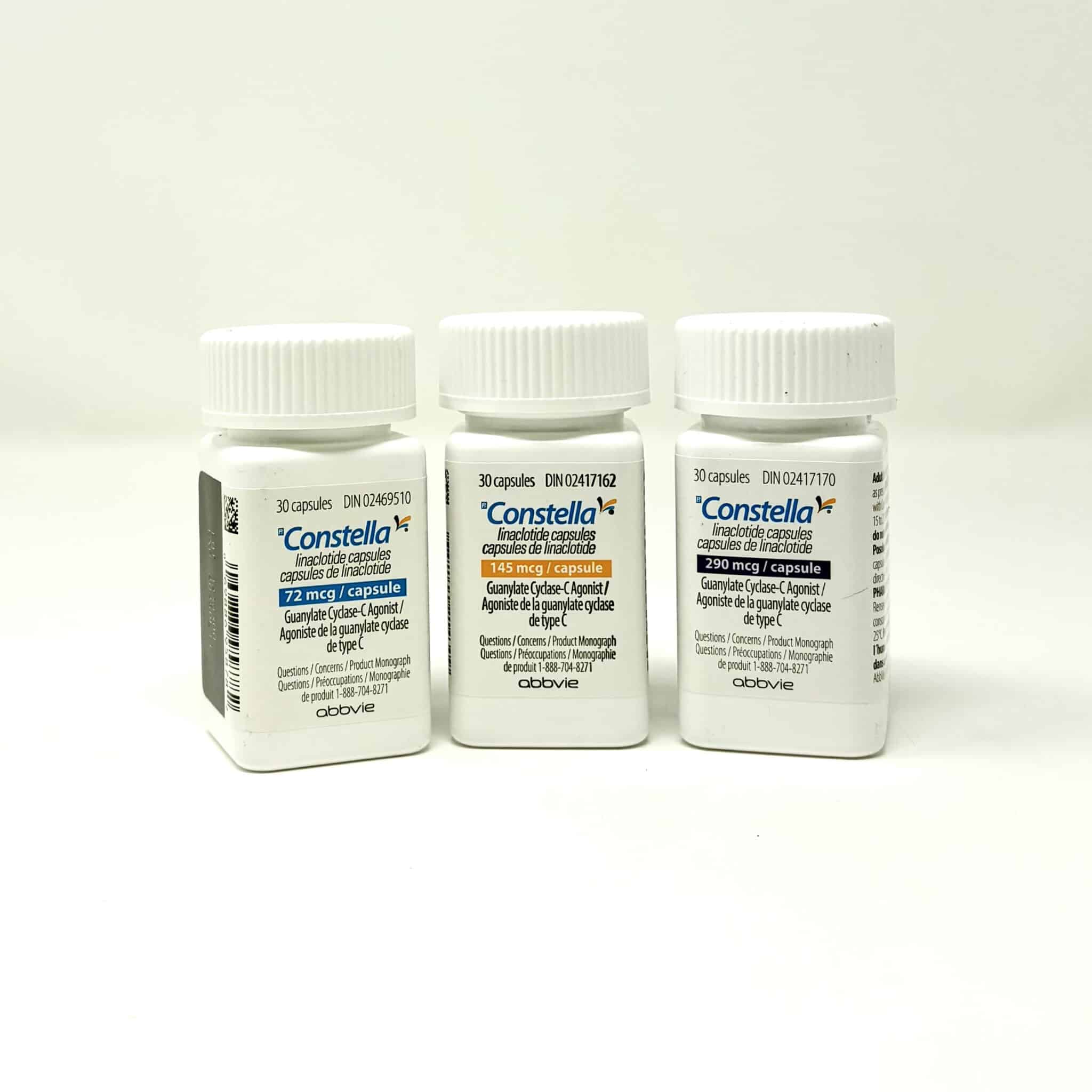Ibsrela vs. Linzess: Which IBS Treatment Is Right for You?
Ibsrela vs. Linzess: Which IBS Treatment Is Right for You?
- Jason K
Irritable bowel syndrome (IBS) affects millions of people worldwide, and finding the right treatment can feel overwhelming. Ibsrela (tenapanor) and Linzess (linaclotide) are two popular medications designed to alleviate IBS symptoms, but their mechanisms, benefits, and side effects vary. This article explores the key differences between Ibsrela and Linzess, helping you decide which treatment may be best for managing your IBS.
How Ibsrela and Linzess Work
Ibsrela (Tenapanor):
- Ibsrela works by targeting the sodium/hydrogen exchanger 3 (NHE3) in the gut.
- By inhibiting NHE3, it reduces the absorption of sodium, which increases water in the intestines. This softens stool and makes bowel movements easier.
- Ibsrela is primarily approved for IBS with constipation (IBS-C) and is known for its effectiveness in reducing abdominal pain and bloating.
Linzess (Linaclotide):
- Linzess works by activating guanylate cyclase-C receptors in the intestines, which stimulates the secretion of chloride and water into the gut.
- This action helps to soften stool and relieve constipation, while also reducing visceral hypersensitivity (pain from IBS).
- Linzess is approved for both IBS-C and chronic idiopathic constipation (CIC).
Key Difference:
Ibsrela primarily affects sodium absorption, whereas Linzess focuses on chloride secretion. Both mechanisms increase water in the gut but target different pathways.
Effectiveness: What to Expect
Ibsrela:
- Studies show Ibsrela is effective in reducing abdominal pain and improving stool consistency.
- Many patients experience relief within the first few weeks of treatment.
- It’s particularly effective for patients with bloating as a dominant symptom.
Linzess:
- Linzess has been proven to improve both bowel habits and abdominal discomfort.
- It may take longer (up to 2 weeks) for some patients to see full results compared to Ibsrela.
- Linzess has been shown to reduce the frequency of hard stools and increase the frequency of complete bowel movements.
Key Takeaway:
Both medications are effective for IBS-C, but Ibsrela may provide faster relief for bloating, while Linzess is better suited for improving overall stool regularity.
Side Effects and Tolerability
Ibsrela:
- Common side effects include diarrhea, abdominal distension, and nausea.
- Diarrhea may be more frequent with Ibsrela due to its impact on sodium and water absorption.
Linzess:
- The most common side effect is diarrhea, which can be severe in some cases.
- Other side effects include gas, bloating, and mild abdominal pain.
Key Consideration:
Both medications have similar side effects, but patients with severe diarrhea may prefer Linzess’s slower onset, as it allows for more gradual adjustment.
Dosing and Administration
Ibsrela:
- Typically taken twice daily immediately before meals.
- The timing of meals is crucial for optimal effectiveness, as Ibsrela works directly with the gut’s sodium transport during digestion.
Linzess:
- Taken once daily, at least 30 minutes before the first meal of the day.
- The simplified dosing schedule may be more convenient for patients with busy lifestyles.
Key Difference:
Linzess offers the advantage of a single daily dose, whereas Ibsrela’s twice-daily schedule requires more planning around meals.
Cost and Availability
Ibsrela:
- Ibsrela is newer to the market, so generic versions are not yet available.
- Prices may be higher depending on insurance coverage, but savings programs and patient assistance are often available.
Linzess:
- Linzess has been on the market longer, and while no generic version is currently available, it is widely covered by insurance plans.
- Manufacturer coupons and pharmacy discounts can help reduce out-of-pocket costs.
Key Consideration:
Cost may be a deciding factor for some patients. Always check with your pharmacy or insurance provider to compare prices.
Which Medication Is Right for You?
Choosing between Ibsrela and Linzess depends on several factors, including your specific symptoms, lifestyle, and how your body responds to treatment.
Choose Ibsrela if:
- You experience significant bloating or abdominal discomfort as primary symptoms.
- You prefer a medication that works directly with sodium absorption.
- You’re looking for faster relief for IBS-C symptoms.
Choose Linzess if:
- You prioritize stool regularity and overall digestive health.
- You prefer a once-daily dosing schedule.
- You’re sensitive to medications that may cause diarrhea.
FAQs About Ibsrela and Linzess
1. Can Ibsrela and Linzess be taken together?
No, these medications target different pathways and are not typically prescribed together. Consult your doctor for personalized advice.
2. How long does it take for these medications to work?
Ibsrela may provide noticeable relief within the first few weeks, while Linzess may take up to 2 weeks to show full effects.
3. Are dietary changes necessary while taking Ibsrela or Linzess?
Yes, a low-FODMAP diet or other IBS-friendly eating plans can complement these medications for better symptom management.
4. Which medication has fewer side effects?
Both medications have similar side effects, primarily diarrhea. Your doctor can help you decide based on your medical history and tolerance.
Conclusion
Both Ibsrela and Linzess are effective options for managing IBS-C, offering unique benefits depending on your symptoms and preferences. While Ibsrela works quickly to relieve bloating and abdominal pain, Linzess excels at improving stool regularity with a convenient once-daily dose.
Consult your healthcare provider to determine which medication is best suited for your condition. With the right treatment plan, you can take control of your IBS symptoms and improve your quality of life.
Reference:


